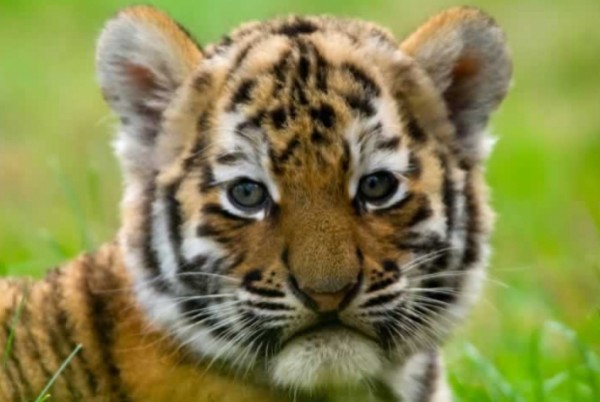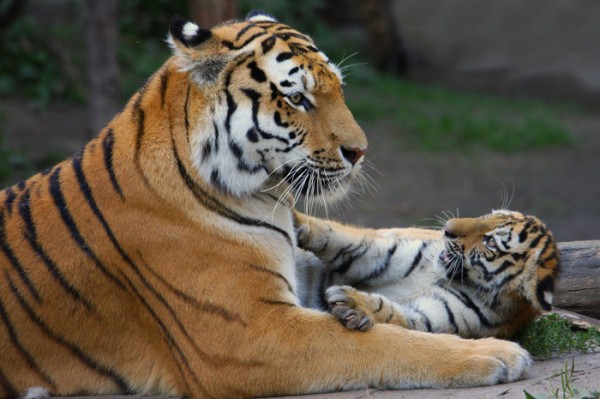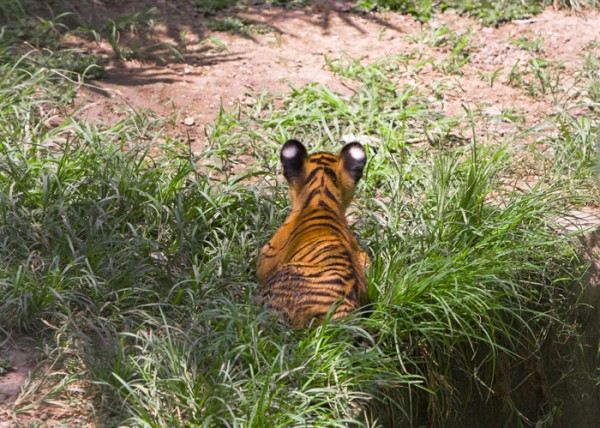
USDA Issues a Tech Note Cracking Down on Abuse of Cubs
In response to a 2012 legal petition filed by The Humane Society of the United States, World Wildlife Fund, Detroit Zoological Society, International Fund for Animal Welfare, Born Free USA, Big Cat Rescue, and the Fund for Animals and Global Federation of Animal Sanctuaries, The United States Department of Agriculture (USDA) issued a Tech Note with guidelines making it clear that exhibitors violate the Animal Welfare Act when they allow members of the public to handle or feed infant exotic cats like tigers, lions, cheetahs, jaguars or leopards.
The USDA, Animal and Plant Health Inspection Service (APHIS) determined that newborn and infant nondomestic cats four weeks (28 days) of age or younger (neonate or neonatal) have special handling and husbandry needs. In addition, the Animal Welfare Act regulations require licensees to provide these animals with preventive and responsive veterinary care and adequate housing and nutrition, to ensure they are handled safely and protected from harm.
Exposing Cubs 4 Weeks or Younger to Public Violates Animal Welfare Act
Licensees who do not house neonatal nondomestic cats in a controlled, sanitary, temperature-controlled environment and do not handle such animals in a manner that does not expose them to any form of public contact, including public feeding and handling are considered noncompliant with the veterinary care and handling requirements of the Animal Welfare Act regulations.

Photo by metalmaus
Neonatal nondomestic cats of this age are not able to thermoregulate and lack a fully functioning immune system to fight off disease and infections. Neonates obtain most of their immunity from their mother, primarily through suckling antibody-rich colostrum (first milk), and should be housed with their mother for as long as possible after birth to promote good health. Because of their limited immunity, a young cat’s health is at risk if they are exposed to other animals or offered for public contact. Until the cats are able to thermoregulate and are immunocompetent, they should be housed in the controlled environment of a heated, clean, and sheltered enclosure like a nursery or in a clean, sheltered enclosure with the mother and any healthy siblings.
Need to Prohibit Public Contact with Big Cats, Bears and Nonhuman Primates
This is a great first step to put roadside zoos and the public on notice that federal laws prohibit using infant cubs for photographic opportunities and interactive experiences. Anna Frostic, senior attorney for wildlife & animal research at The Humane Society of the United States stated that “It is imperative that the agency take additional action to prohibit public contact with big cats, bears and nonhuman primates of any age.”
In addition to these animal welfare, public safety and conservation concerns, “the surplus of exotic animals in roadside zoos and other substandard facilities puts an enormous financial burden on the accredited sanctuaries that provide lifetime care for abandoned and seized animals,” according to Michael Markarian, president of The Fund for Animals.

Photo by KKulikov
Investigations revealed using tiger cubs for photo ops and play sessions can yield over $20,000 per month for a roadside zoo, fueling demand for more and more cubs. Once the cats mature, their future is uncertain. “There is just not enough space or resources at accredited sanctuaries to support the demand created by this irresponsible breeding,” said Kellie Heckman, executive director of Global Federation of Animal Sanctuaries.
Further, “the fate of captive tigers in the U.S. has serious implications for the conservation of tigers in the wild,” said Leigh Henry, senior policy advisor for Wildlife Conservation at World Wildlife Fund, “strengthened regulation of U.S. captive tigers will help ensure that captive-bred tiger parts don’t enter the black market and stimulate the demand that drives the poaching of wild tigers.”
Good news for cubs.
YES! This is very good news!
“It is imperative that the agency take additional action to prohibit
public contact with big cats, bears and nonhuman primates of any age.”
~~~~~~~ yes…..PLEASE, and the sooner, the better ?